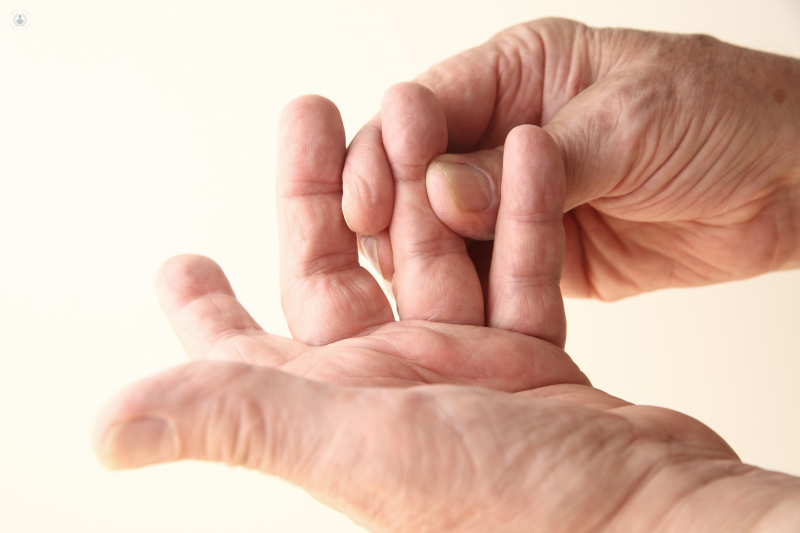Keeping psoriatic arthritis under control
Autore:Up to 15% of people who have psoriasis may develop psoriatic arthritis – a progressive and challenging form of arthritis. It can have a huge impact on people’s lives and cause long-lasting damage to your joints. Nowadays, thanks to modern medication, it’s possible to relieve symptoms and stop the disease in its tracks.
Dr Joel David, a leading rheumatologist, explains to us more about this disease and what treatment is out there.
What is psoriatic arthritis?
Psoriatic arthritis (PsA) is a type of inflammatory arthritis (as opposed to a degenerative arthritis), which results in the joints becoming swollen and painful. It can start suddenly or develop over a couple of weeks. It often occurs in individuals who already have psoriasis or those who have a first degree relative with psoriasis. It is not unusual to develop in a joint that has had a recent injury - this is known as the Knoebner phenomenon.

The psoriatic skin manifestations might be very subtle. The severity of the skin disease does not necessarily mirror the severity of the joint disease. In fact, there may only be slight pitting of the nails, or some presence of dandruff on the scalp. Flakey reddish skin in the ears, belly button, and genital area, around the cleft between the buttocks or on the soles of the feet may be present.
Psoriatic arthritis appears in different forms:
- Non-symmetrical arthritis – this often involves the terminal joints of the fingers or toes. When there is swelling of the whole finger or toe it is referred to as a dactylitis. Large joints such as the knees, ankles and elbowmay also be affected.
- Symmetrical joint arthritis – this is similar to rheumatoid arthritis, meaning that both hands and feet are affected.
- Spinal involvement – it can appear in the neck, temporomanibular joints (joints connecting the jawbone to the skull) and the sacroiliac joints (joints in the pelvis). Sometimes the shoulders and hips can be affected.
- Arthritis mutilans – this is a rare and very destructive form causing inflammation in the terminal joints of the fingers and also the nails. This leads to damage and deformation of the affected areas.
- Gout – this is more common in people who suffer from psoriasis and is caused by excess uric acid in the bloodstream.
When the joints are affected there is pain, stiffness and swelling, which is usually worse in the mornings. If left untreated, the joints may become permanently damaged.
How is Psoriatic arthritis treated?
The main aim of the treatment is to slow the progression of the condition, prevent permanent damage, relieve symptoms and improve patients’ quality of life.
A rheumatologist may decide on administering steroid injections directly to the joint. If there are multiple joints affected or the condition does not respond to local treatment, then disease modifying therapy (DMARDs) are considered. These drugs can slow the progression of psoriatic arthritis and save the joints from permanent damage.
The most common type of DMARDs is methotrexate – an anti-rheumatic drug which reduces the activity of the overactive immune system. Other DMARDs include salazopyrine and leflunomide. If these are ineffective, then biological therapies with monoclonal antibodies might be used. These include anti-TNF drugs (adalimumab or etanercept) or IL-17 inhibitors such as secukinumab. For severe skin disease, urstikinumab is considered, which stops the action of cells in the body that cause the symptoms of psoriatic arthritis.
Can psoriatic arthritis go away?
Starting treatment as soon as possible could make lasting remission very likely. In general, the outlook is good - although the drugs may need to be continued long-term. The systemic effects of the arthritis are extremely rare - in contrast to rheumatoid, where lung and other system involvement can occur.
If you already have or are suspicious that you are developing PsA, visit Dr Joel David‘s profile and book an appointment.


